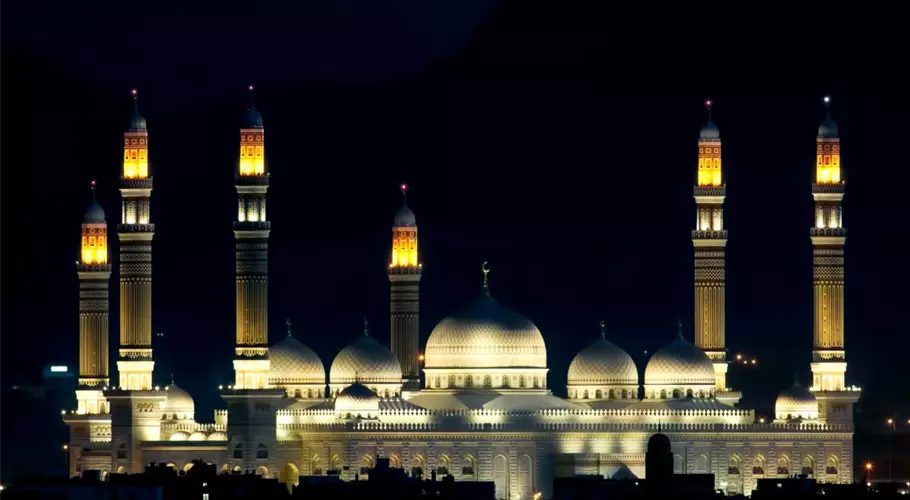Shab-e-Barat is an Islamic event that would be observed on the night between the 14th and 15th night of the month of Sha’aban, the eighth month of the Islamic Calendar by Muslims across the world. Shab-e-Barat, considered to be the holiest night of the Islamic calendar, is devoted to pleading for forgiveness from Allah Almighty for the past year and good fortune for the coming year.
‘Shab’ is a Persian word for the night while ‘Barat’ in Arabic refers to forgiveness and salvation. It is supposed that on the night Allah Almighty writes their destinies for the upcoming year, on the basis of their past deeds. Hence, the night is spent requesting Allah’s mercy for any sin and misdemeanor.
History
Shab-e-Barat memorializes the occasion Prophet Muhammad (PBUH) entered the city of Makkah. Another faith has it that Hazrat Aisha Siddiqa, the wife of Prophet Muhammad (PBUH), went out in search of the Prophet when Aisha found him missing on this night. Afterward, she found him in the cemetery of Medina, somber and praying for the forgiveness of the deceased for a long time and this lent ultimate sanctity to this event.
Significance of the event
According to some beliefs, on the night of this event, the names of the souls who will be born and those who will depart for eternal life are also determined and food sent down. It is considered that the Doors of Forgiveness and Mercy are extensive open on this night as Allah Almighty can be approached for his endless kindness.
Although, some qualities are unacceptable and will not be shown any forgiveness, for instance, a person who creates conflicts between two Muslims or an individual who wrongfully takes away the right and property of another Muslim and has not yet rectified himself.
According to a hadith, “Doubtlessly, Allah surrounds everything on the fifteenth night of Sha’aban with his mercy. He forgives all of His creatures except mushriks (polytheists) and those whose hearts are full of hatred or enmity of others…” (Al-Targhib wa al-Tarhib, 2:118).
In a hadith, Aisha is reported to have said that Muhammad (PBUH) said, “This is the middle night of Sha’ban. Allah frees in it a large number of the people from Hellfire, more than the number of hairs growing on the sheep of the tribe, Kalb.”
“But He does not even look at a person who associates partners with Allah, or at a person who nourishes malice in his heart (against another Muslim), or at a person who cuts off the ties of womb-relations, or at a man who leaves his clothes extending beyond his ankles (as a sign of pride), or at a person who disobeys his parents, or at a person who has a habit of drinking wine,” as per the hadith.
Another hadith classed Hassan by Albani in his silsilah Al-Sahihah says, “Allah looks at His creation during the night of the 15th of Sha’aban and He forgives His servants except for two-one intent on hatred (mushin) and a murderer (qatilu nafs).” According to the Holy Quran, on this night Allah said: “Who wants forgiveness, I will forgive you. Who wants food, I will provide food.”
Celebrations
Shab-e-Barat is celebrated with great fervour all over South Asia, including Pakistan, India, Bangladesh, Sri Lanka, and other countries. Those people who observe this night do so with fasting, special prayers, and rituals like staying up for most of the night, generally taking short breaks and praying to Allah Almighty and reciting the Holy Quran until daybreak.
At the times during night vigils along with prayers are also organized however usually people frequently pray at homes with their own families. Charity is done with food and money being dispensed among the deserved.
Most of the Muslims also have a ritual of visiting mosques and graveyards at the event. moreover, on this day, Shia Muslims celebrate the birthday of the last of their ‘Twelve Imams’ Muhammad al-Mahdi, who was delightfully ordained to succeed the Prophet and who is considered to appear again to demolish the phony Messiah and save humankind.
Following COVID-19 SOPs essential
Currently, the country is under the third wave of COVID-19 which is said to be more deadly and dangerous as the Coronavirus has claimed 41 more lives during the past 24 hours, taking the overall death toll to 14,256.
The event is blessings for the Muslims – will be observed in Pakistan, with the promise to rigorously follow coronavirus Standard Operating Procedures (SOPs) and maintain social distance by avoiding large gatherings.
Various gatherings included Mahafil-e-Na’at have also been arranged by different mosques across the country by following SOPs against COVID-19 to mark the holy night and win divine blessings.
It is a religious responsibility for all Muslims to avoid the spread of epidemic or any other contagious diseases based on the clear meaning of this hadith. Every human life (regardless of their faith) is important and honored by Allah (SWT), and to shield life is our religious responsibility.
May Allah reward all of us immensely in this night and protect all of us, our communities, our loved ones, our families, and all of humanity.





































